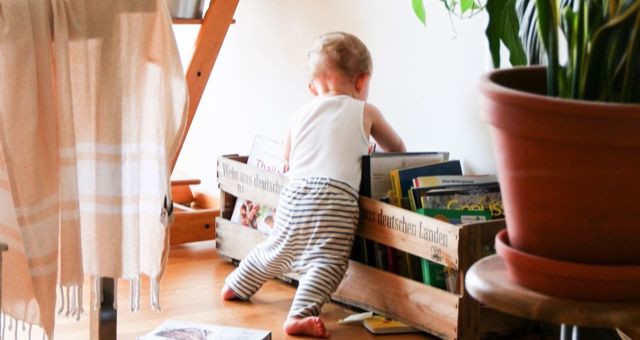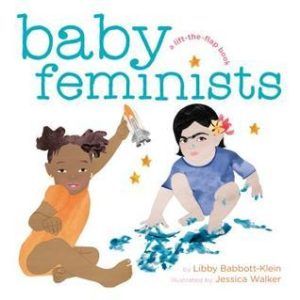
Learning From Choosing Inclusive Books for Our Children
When I was pregnant with my son, I approached buying and registering for baby items with methodical research. I was a soon-to-be first-time mom who knew that she didn’t really know much about babies. So, I armed myself with information, hoping that if I learned enough about car seats, strollers, and baby monitors, I could somehow make up for my parenting inexperience.

When it came to choosing books for my son’s future library, though—that’s where I felt at home. I didn’t scour reviews, hoping to glean insight from well-meaning internet strangers. I didn’t worry that my choices could be wrong or how that wrongness would affect my baby. I had worked with kids in a public library and read thousands of books to prepare for baby and toddler story times. So I was well-versed in classics and new publications, and above all, I genuinely loved reading. Here was something I could excel at immediately, even before our little boy arrived.
I stocked Jack’s library with developmentally stimulating books—ones with black and white art, mirrors, different textures, and flaps. I bought picture books with bold colors and lyrical rhymes, envisioning how we’d read them, cuddled up together before bed. I snapped up board books, knowing they’d have the best chance of lasting through the rough and tumble toddler years. And I searched for stories with heart—hoping that through reading, he’d learn empathy and understanding.
I put particular emphasis on finding books with main characters who were girls and people of color. I knew Jack would be able to find himself reflected in stories. White male characters aren’t that hard to come by in media. I wanted, just as often, for him to see stories where the main character was a girl. Or a person of color. Or a person with a disability. I wanted to make sure he’d grow up seeing them as heroes, too. Because they are. I thought that by stocking his library with diverse characters and writers, I could raise a son who embraced other people’s differences. Who wouldn’t see them as “other.” We’d set that standard together, one page at a time.
Soon enough, Jack arrived, and we eventually settled into life together. If he enjoyed our story times, I delighted in them. As he grew, I searched for new books to add to our collection. Every time I found a great title featuring a little girl or a child of color or a blended family, I silently patted myself on the back. I thought, “My son will grow up understanding that other people face challenges he might not see or think about. He’ll see beauty in other cultures and in our differences, because we talk about it. Because we read about it.” I viewed our story selections as the first step in raising an empathetic child. And I felt good about our choices.
Time passed and I soon found myself pregnant again, this time with a little girl. When I was about six months along, Jack and I were on a Target run when we stopped by the book section. Not wanting to lift my heavy one-and-a-half-year-old out of the cart, I plucked three titles off the shelves and handed them to Jack to examine. Almost right away, he favored one with rubber textures and sea animals on every page.
 “Great,” I said. “Now can you help Mommy pick a book for baby sister?” Again, I handed him three books, and again, Jack picked one immediately. I laughed out loud when I realized he picked Baby Feminists by Libby Babbott-Klein & Jessica Walker. I remember congratulating Jack on his great choice and feeling proud that my son picked a book about feminists over others with colorful characters.
“Great,” I said. “Now can you help Mommy pick a book for baby sister?” Again, I handed him three books, and again, Jack picked one immediately. I laughed out loud when I realized he picked Baby Feminists by Libby Babbott-Klein & Jessica Walker. I remember congratulating Jack on his great choice and feeling proud that my son picked a book about feminists over others with colorful characters.
When we got home, Jack dug the books out of our bags and brought me Baby Feminists to read. I hesitated. That was supposed to be for his sister—did it make it less “hers” if we read it before she arrived? Could I really expect Jack to not play with his sister’s things—ever? I figured when it came to books, they’d just have to share. I pulled Jack onto my lap and together, we devoured it. When we finished, he demanded we read it again. And again.
After the third or fourth read-through, I realized with shame that I hadn’t offered this book to Jack in the store. I picked it up for his sister, sure, but for my son? I had offered him choices with robots, outer space, and sea animals. Why hadn’t I offered it to Jack? I believed deeply in diversity and I considered myself a feminist—so why did I automatically rule out this beautiful book for my son?
It was a simple moment, a slip of learned prejudice. I realized that if I wanted to use books as a window to an inclusive, kinder world for my son, I’d need to do better. The thought of buying my daughter a book about baby feminists filled me with warmth and happiness the entire drive home. But for my son? Embarrassingly, the thought didn’t cross my mind.
It’s great that my son already has a diverse library. And as he gets older, he’ll develop preferences for the types of books and subjects he likes. Right now, it’s Sesame Street and dinosaurs. There’s nothing wrong with getting him books that I know he’ll enjoy, about topics he’s already shown interest in. But I need to continue searching for stories that’ll teach him something new about the world around him and the people who live here.
Baby Feminists never made it to my daughter’s toy box or book shelves. It’s still one of Jack’s favorite books. And last month when I discovered the sequel, Baby Feminists Too, I jumped at the chance to buy it. For my son.
If you’re looking for books for your child’s library, check out 30 Children’s Books About Diversity That Celebrate Our Differences.





